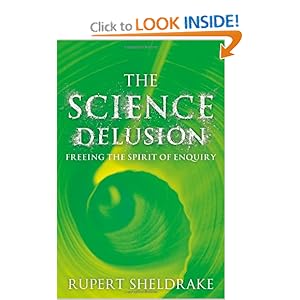 Were we discussing bacterial described by researchers in terms like “miracle,” and “miraculously” because their genomes somehow reassemble after being cut to bits? Rupert Sheldrake, animal behaviour researcher and former Darwinist, wouldn’t be too surprised:
Were we discussing bacterial described by researchers in terms like “miracle,” and “miraculously” because their genomes somehow reassemble after being cut to bits? Rupert Sheldrake, animal behaviour researcher and former Darwinist, wouldn’t be too surprised:
For him, it was animals, the way they often seem to know things – including things not accessible to the human intellect – that are not fully explained by their conventional senses.
As we see, even bacteria can do things that point to previously unknown high levels of information, which is immaterial by its nature.
At any rate, Darwin’s followers unfriended Sheldrake for heresy.
… Richard Dawkins, guardian of Darwinian correctness, made a point of hounding Sheldrake, and at one point had to be shown out of his lab.
Now Darwin’s kitty, Jerry Coyne, is taking up the cudgel against Sheldrake and in defense of the Wikipedia slime pit with Sheldrake’s name on it here:
Last summer someone decided to fix Sheldrake’s Wikipedia article, which, edited by his supporters, had been promoting Sheldrake’s woo in violation of Wikipedia policy on fringe science and pseudoscience. Perhaps you don’t know about this policy, but you can read about it at the link. It begins like this:
When discussing topics that reliable sources say are pseudoscientific or fringe theories, editors should be careful not to present the pseudoscientific fringe views alongside the scientific or academic consensus as though they are opposing but still equal views. While pseudoscience may in some cases be significant to an article, it should not obfuscate the description or prominence of the mainstream views.
It’s a pretty good policy, and prevents people like Sheldrake and his deluded supporters from editing Wikipedia articles to give unwarranted credibility to their pseudoscience. And that policy allowed the rationalists to come in and clean up Sheldrake’s page, which they did.
Wikipedia? Guess Coyne didn’t get the memo that “Of the 1,000 articles that the project’s own volunteers have tagged as forming the core of a good encyclopedia, most don’t earn even Wikipedia’s own middle- ranking quality scores. ”
Wikitrolls like his friends help secure that outcome.
Hard to say why anyone takes Wikipedia seriously. Sure, there are some good articles in there, just as there is some good journalism in a failing daily newspaper. But do you have all day to look for it? And how would you know without vetting the story yourself? In which case …
For that matter, why does anyone take a person who takes Wikipedia seriously, seriously?
Hat tip: Stephanie West Allen at Brains on Purpose